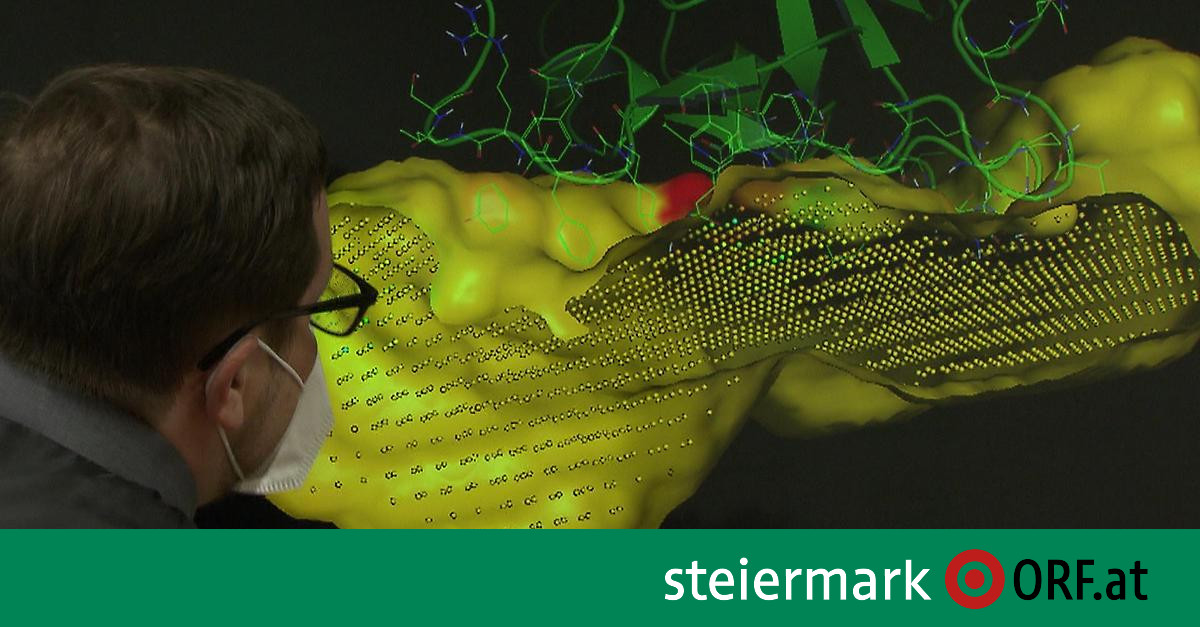
Graz researchers on the effect of mutations
Researchers at the bioinformatics company Innophore, acib (Austrian Center for Industrial Biotechnology) and the University of Graz are using artificial intelligence (AI) based screening methods. Mutations – that is, changes in the genetic material of an organism – can occur spontaneously or due to external influences. In the case of viral mutations, this can sometimes have a direct effect on infection, transmission, and vaccine efficacy. As the Acib Research Center announced Wednesday, Graz partners have been researching SARS-CoV-2 mutations for about a year.
Practice for the lead
Constantly changing viruses make new automated detections necessary, which indicate which mutation has the best chance of winning. Through this guidance, one can develop more effective preventative drugs to counteract changes in the genetic material of viruses, explains Christian Gruber, CEO of the emerging biotech company Innophore.
The acib spun off and Uni Graz have already developed a search engine over the past few years that can use artificial intelligence and big data to filter enzymes and active ingredients for the pharmaceutical industry from thousands of structural data in databases.

“Predict mutations like weather”
Since the start of the epidemic, Graz researchers have used tremendous computer power to monitor the changes, spread and mutations of the virus, using more than half a million coronavirus genome sequences.
“Based on the sequencing that is now increasingly being implemented globally, we can use AI and modeling methods to roughly calculate different scenarios. By comparing our data with clinical and laboratory observations, we can improve the predictive models. This will enable us to predict mutations such as Weather – not just a response to it.
S477 mutations could be ‘still closely related’
“We are seeing a number of mutations emerging and we are currently discovering less common, structurally clear mutations that bind more strongly to human cell receptors and thus could become highly relevant.” Gruber said that mutations are like the two specific mutations in the Serene site 477, which, according to current figures, were infected More than 27,000 people worldwide are infected with the infection, that should definitely be taken into account.
“We are not virologists, but we can see that something is changing and you have to be careful,” he said, assessing the situation. The latest findings, which appeared recently in the specialist journal “Scientific Reports,” have already been reported to German biotechnology company Biontech, previously mentioned.
Give in to control
“These results represent a great opportunity for all vaccine manufacturers, as these models help the industry prepare and develop vaccine lines that can also protect unknown and potentially more dangerous mutations,” said Gruber. The goal of the Graz researchers is to work with major vaccine manufacturers to control epidemics at an early stage. According to the researchers, it is indisputable that epidemics will continue to accompany our lives.

“Organizer. Social media geek. General communicator. Bacon scholar. Proud pop culture trailblazer.”
